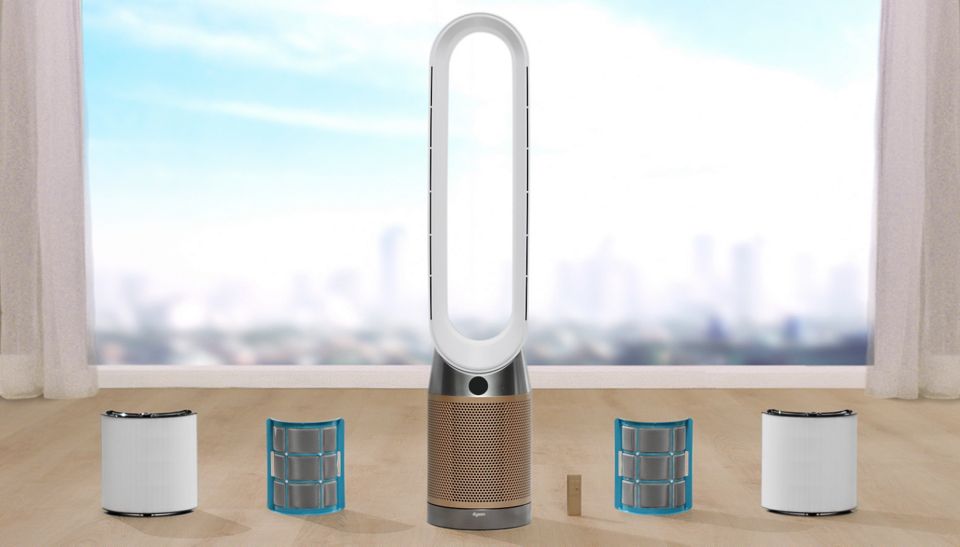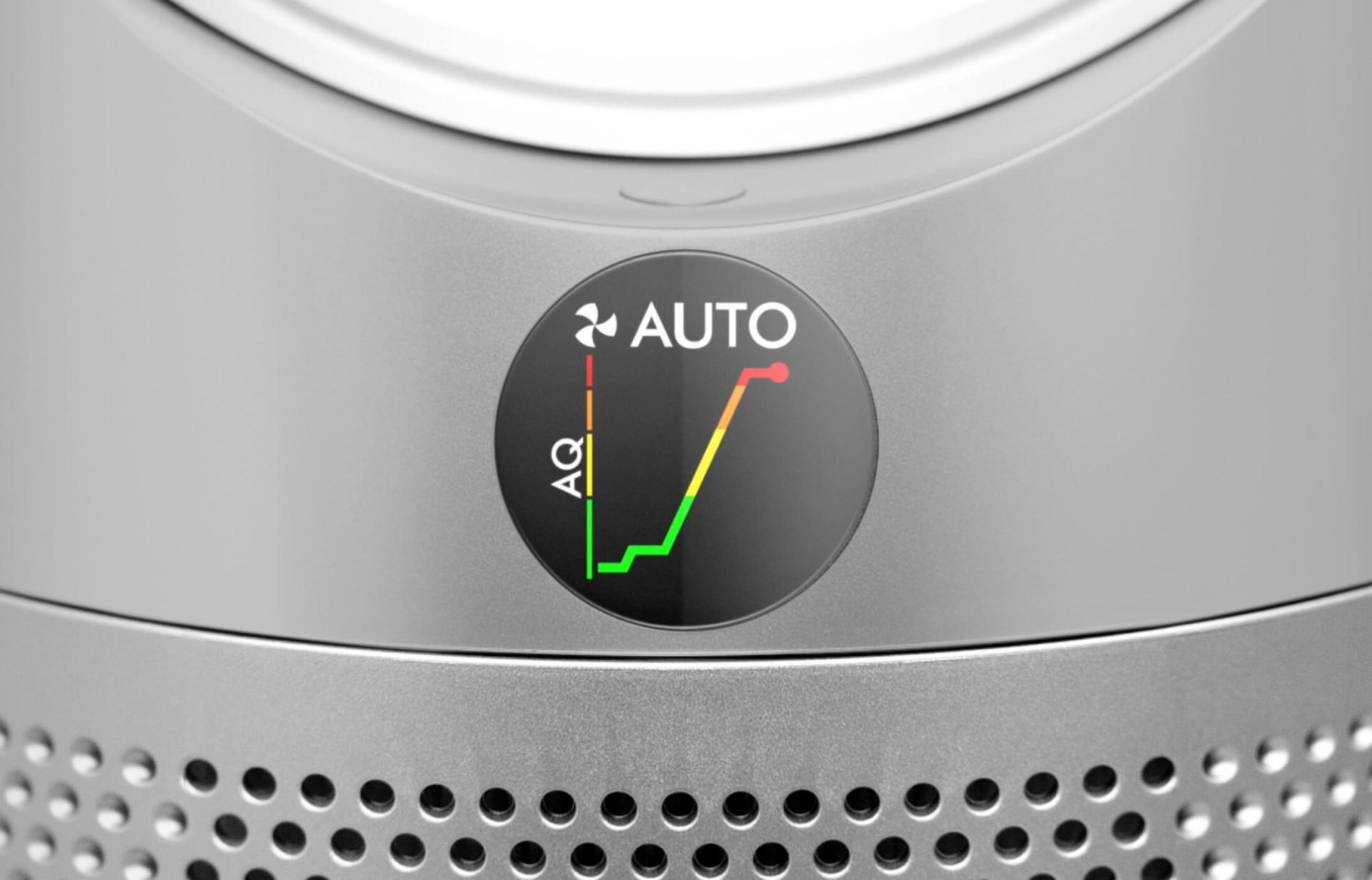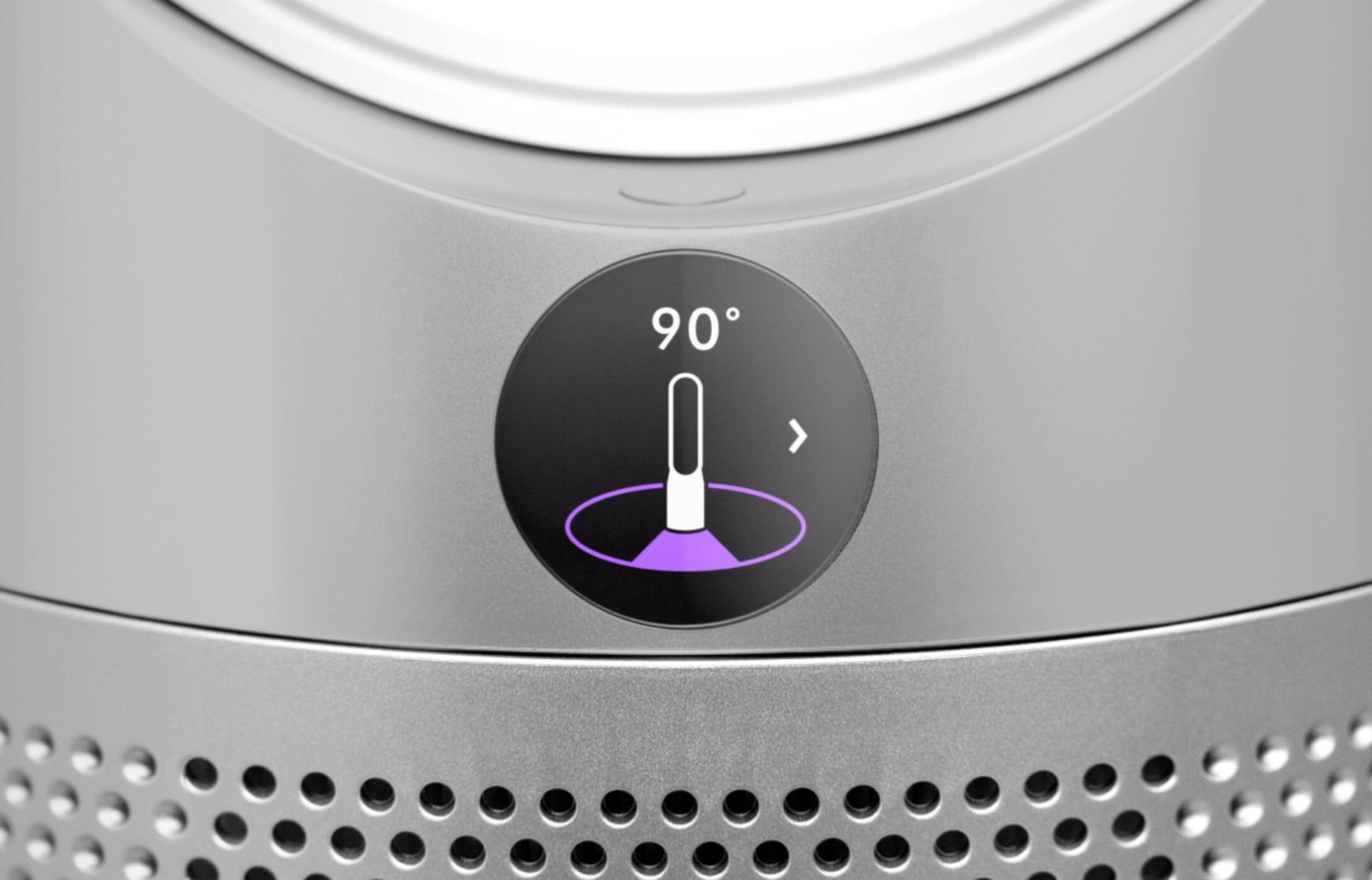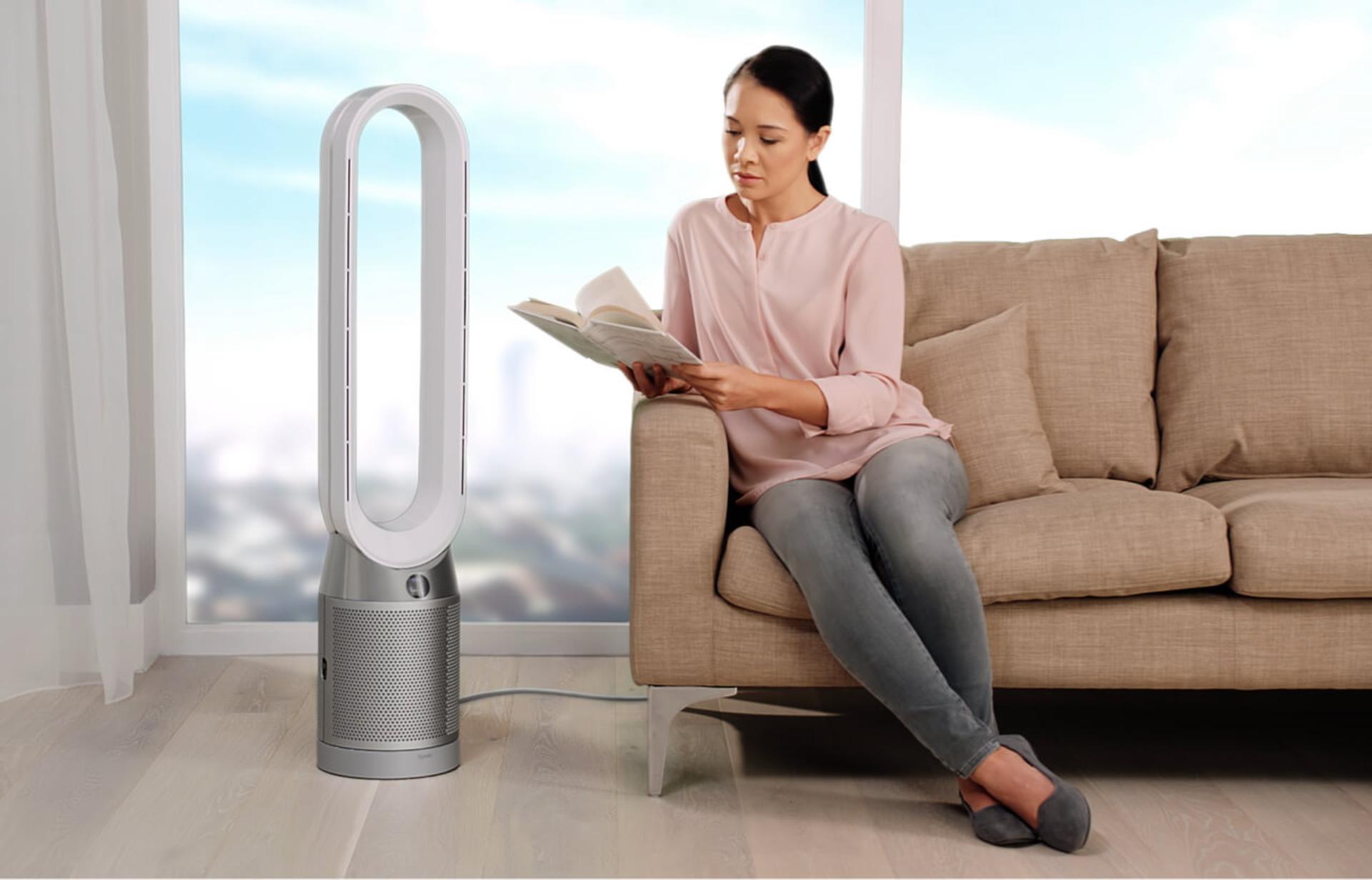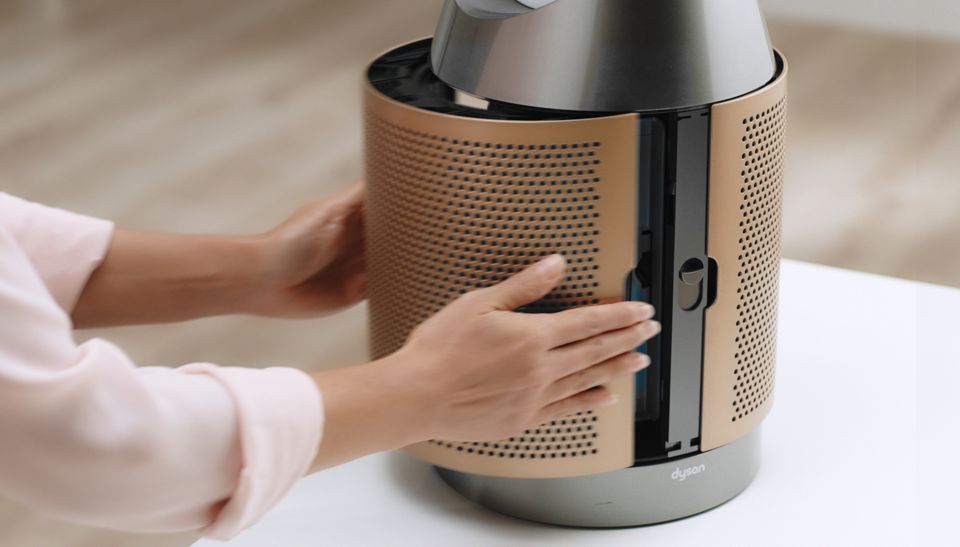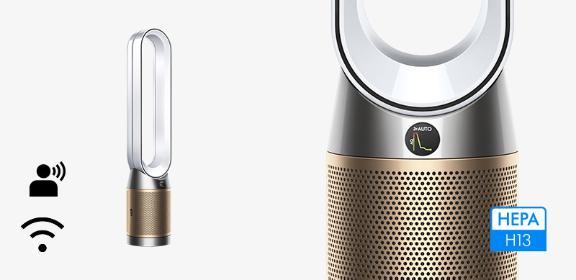Support for your Dyson Purifier Cool Formaldehyde
Dyson Purifier Cool Formaldehyde TP09
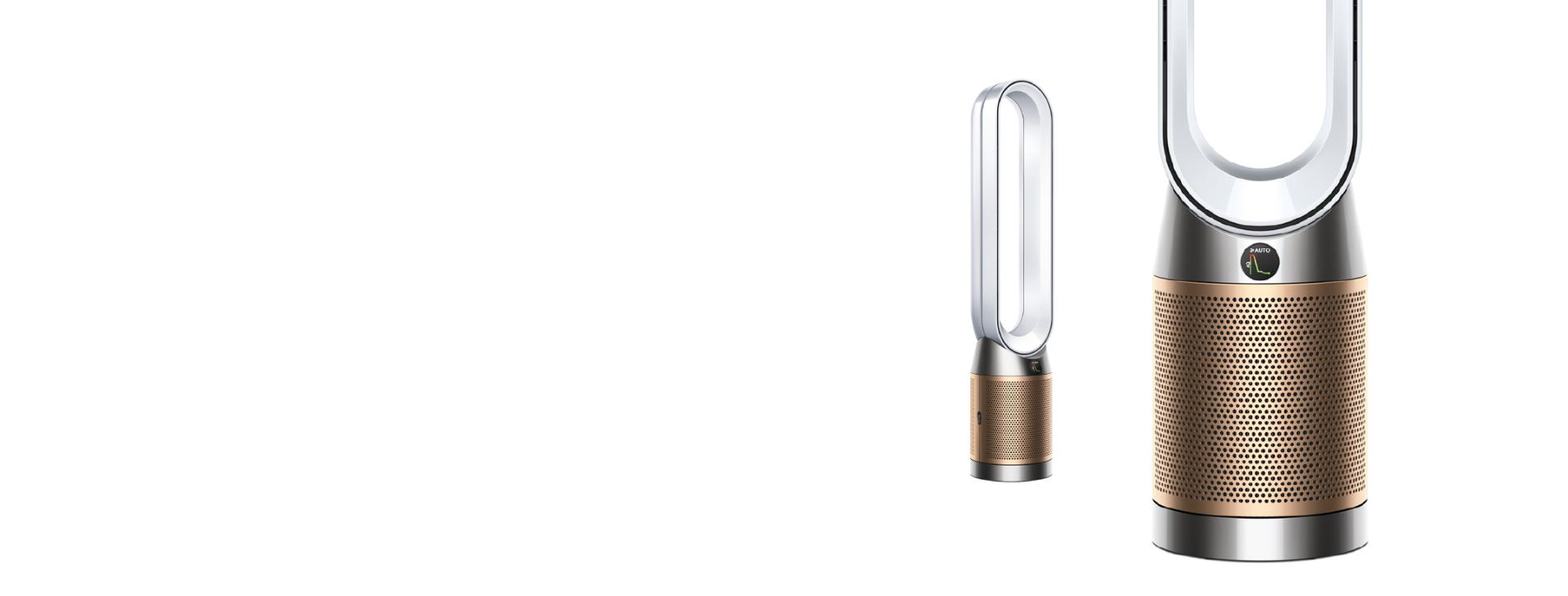
Here you can find helpful tips, video guides, maintenance advice, your user manual and more.
Register your purifier
Register your purifier for instant access to how-to guides, user manuals and more. You can also receive tailored support, direct to your inbox.
Getting started
Watch how to quickly get up and running with our step-by-step video guide.
Connecting your purifier
Follow these three steps to connect your purifier to the MyDyson app.1
-
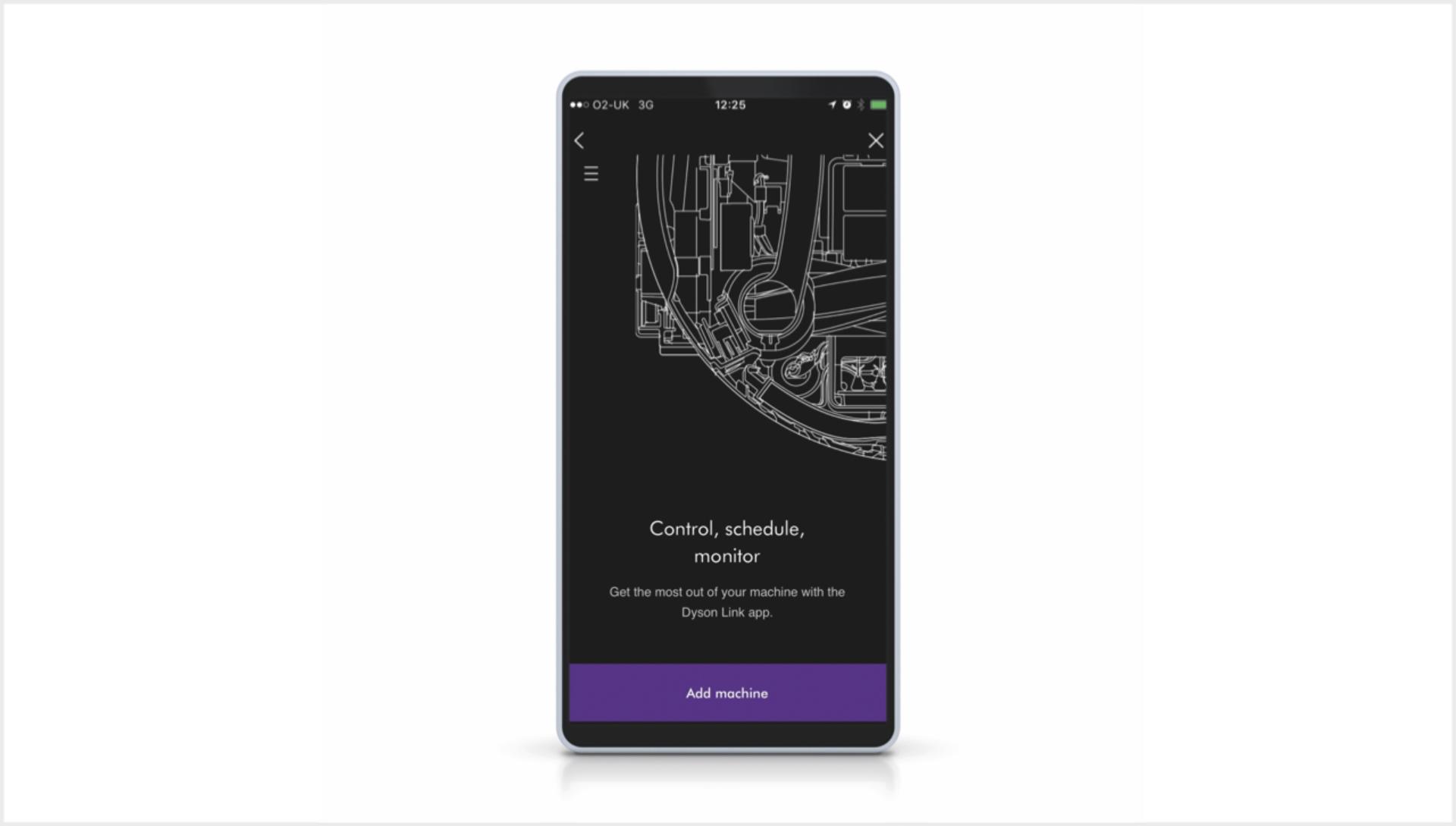
Step 1
Download the MyDyson app to your mobile device, open and select 'Add machine' from the menu. Then select your purifier. -
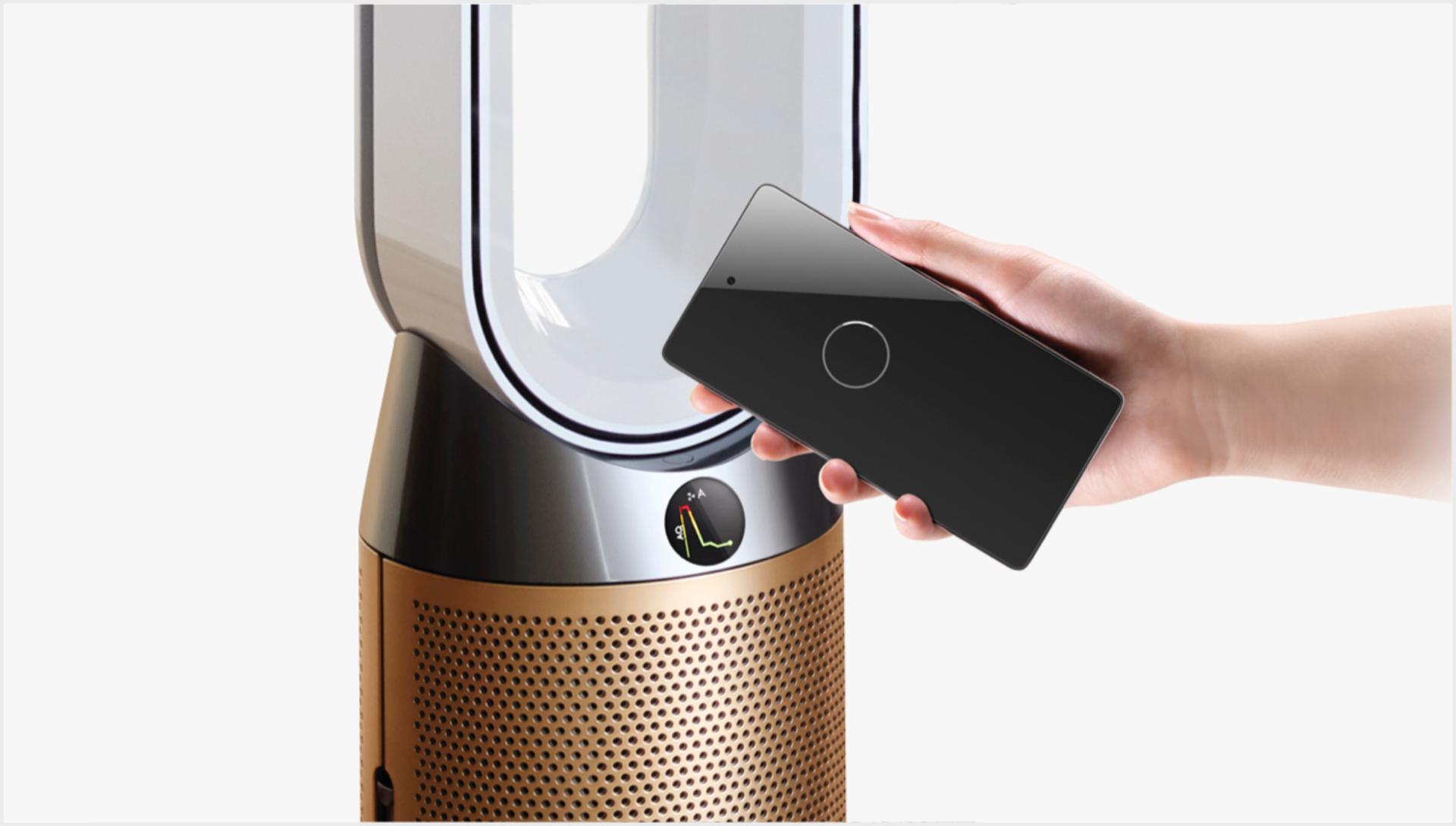
Step 2
Hold your device next to your purifier's LCD screen. This will allow your machine to detect your mobile device. -
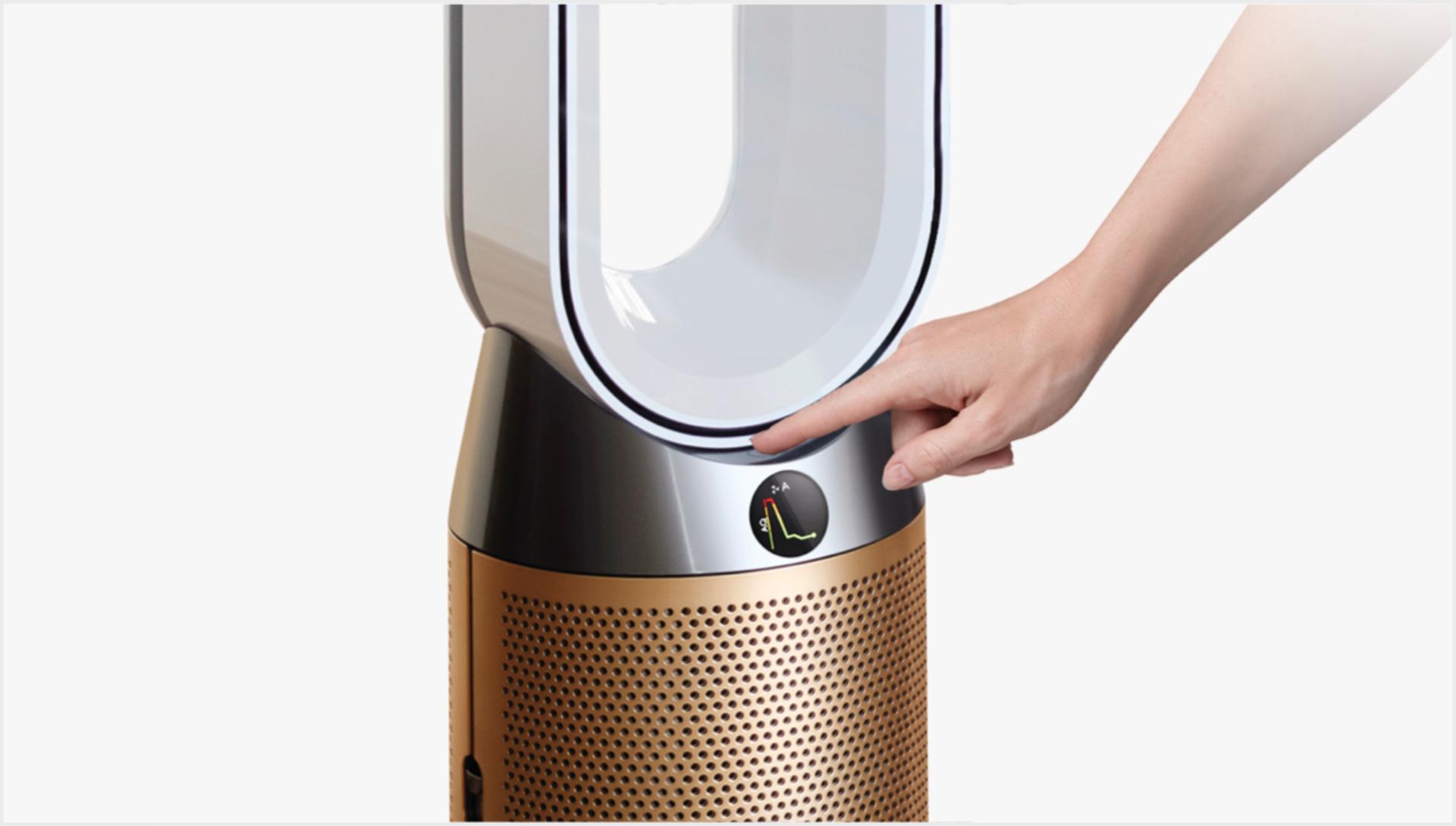
Step 3
Press the Standby button on your purifier to activate the pairing process. Then follow the on-screen instructions to complete connection set-up.

Voice control. All you have to do is ask.
Using your purifier is even quicker and easier with a compatible voice service like Google Assistant or Apple's Siri. You can enable the Dyson skill, or set this up via the MyDyson app. Find out more about voice control.
-

Google Home
Control all of your connected purifiers with Google or set a routine to automate how your machine works with other devices in your home. Just say “Hey Google” to get started. -

Siri Shortcuts
Connect your Dyson machines to Siri Shortcuts and you’ll be able to control them with your voice, on your Apple device.
Try using these voice commands:
"Alexa, ask Dyson to increase fan speed."
"OK Google, ask Dyson to start oscillating."
"Hey Siri, ask Dyson to turn on Night mode."

User manual
Download your Dyson Purifier Cool Formaldehyde user manual.
Filter looks may vary from the images shown on the website, but it is not impact on performance.
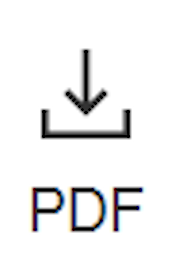
8.8MB
How to use your purifier
Understanding the LCD screen icons
The icons on your LCD screen show which pollutants are present, reporting them in real time. They also tell you about temperature, humidity and filter life.
-
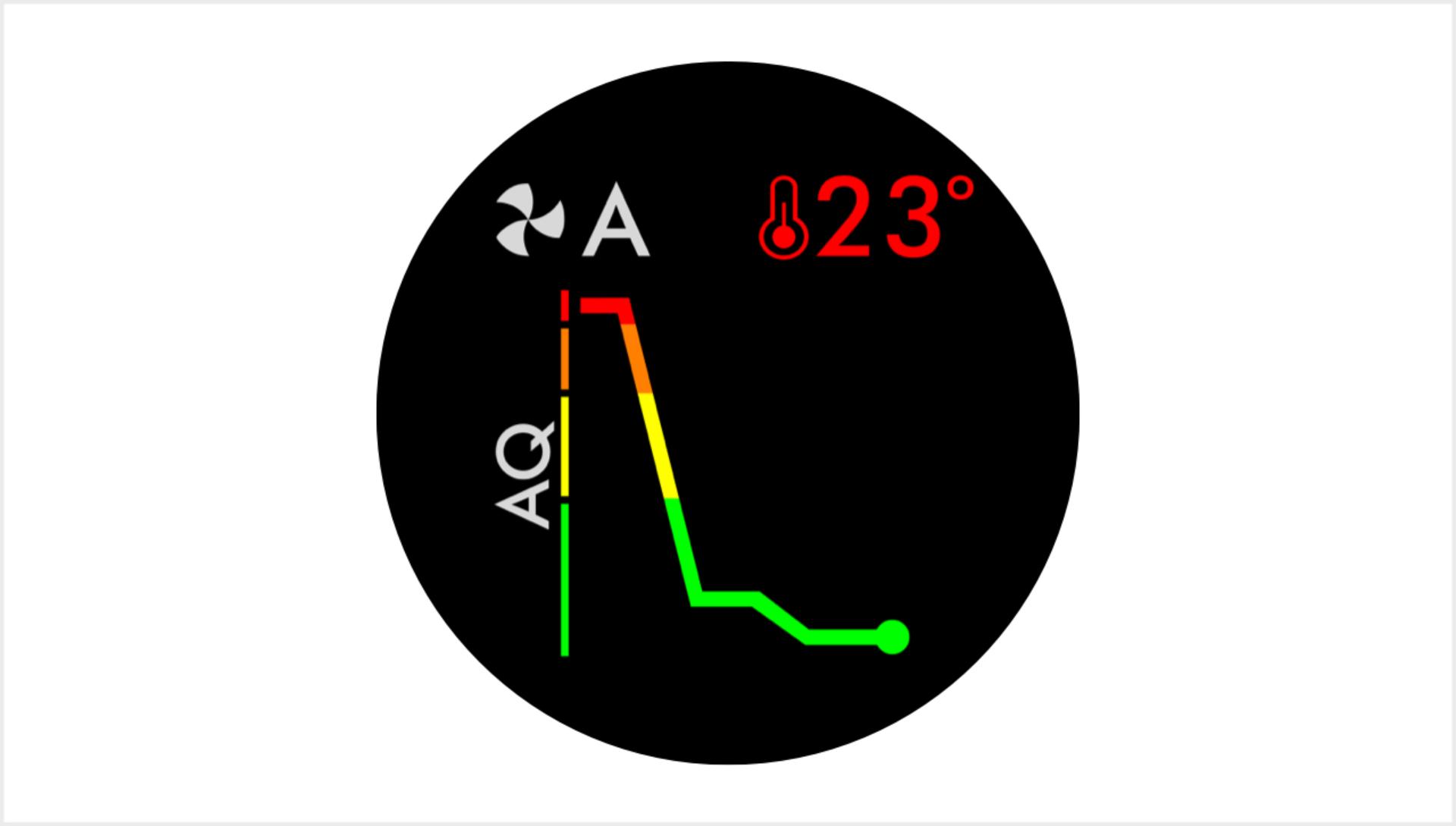
Indoor Air Quality Index (AQI)
Shows your air quality over the last 12 seconds, or over the last 24 hours. -
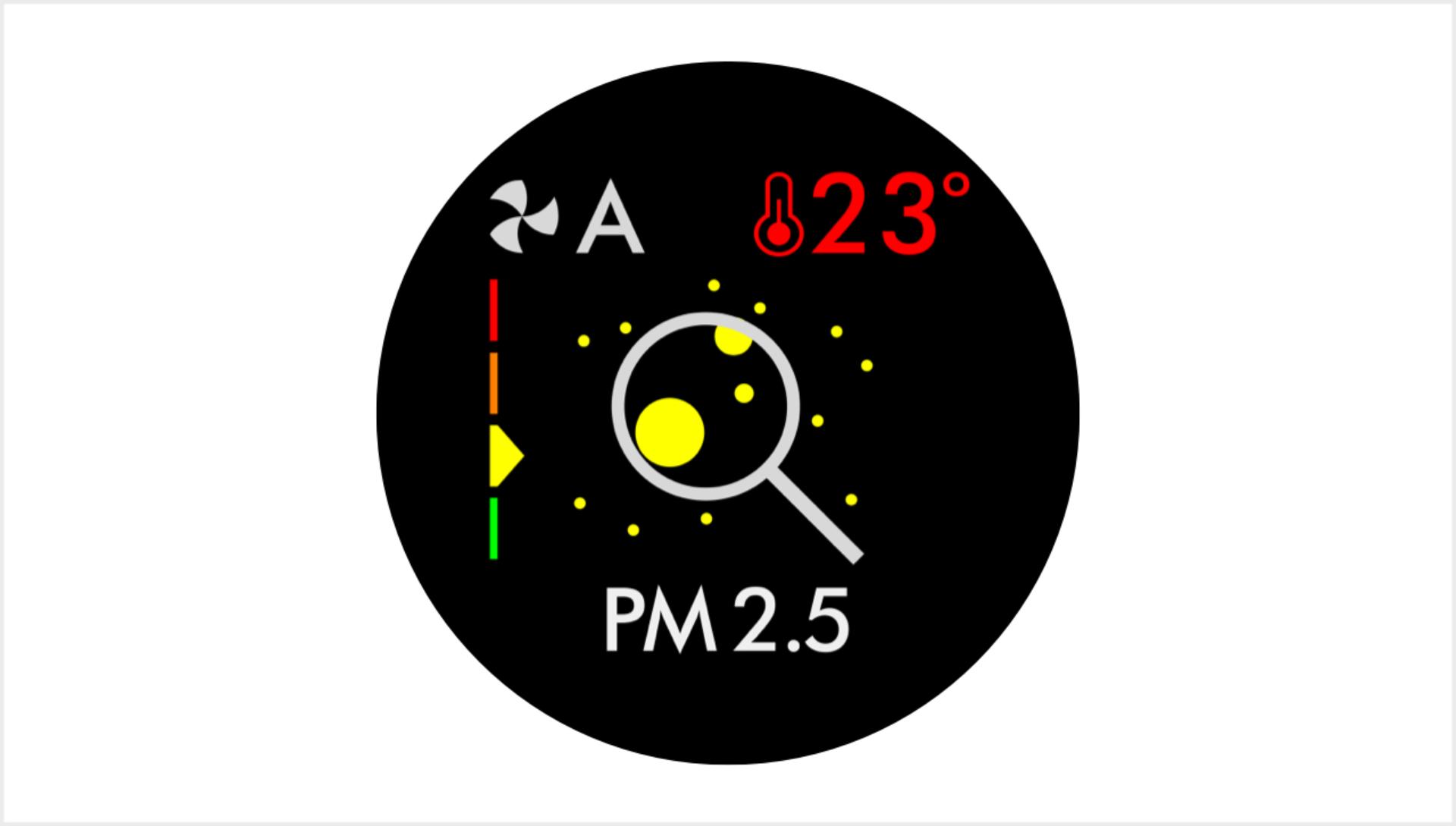
Particulate matter PM2.5
Shows microscopic particles smaller than 2.5 microns, including smoke, bacteria and allergens. -
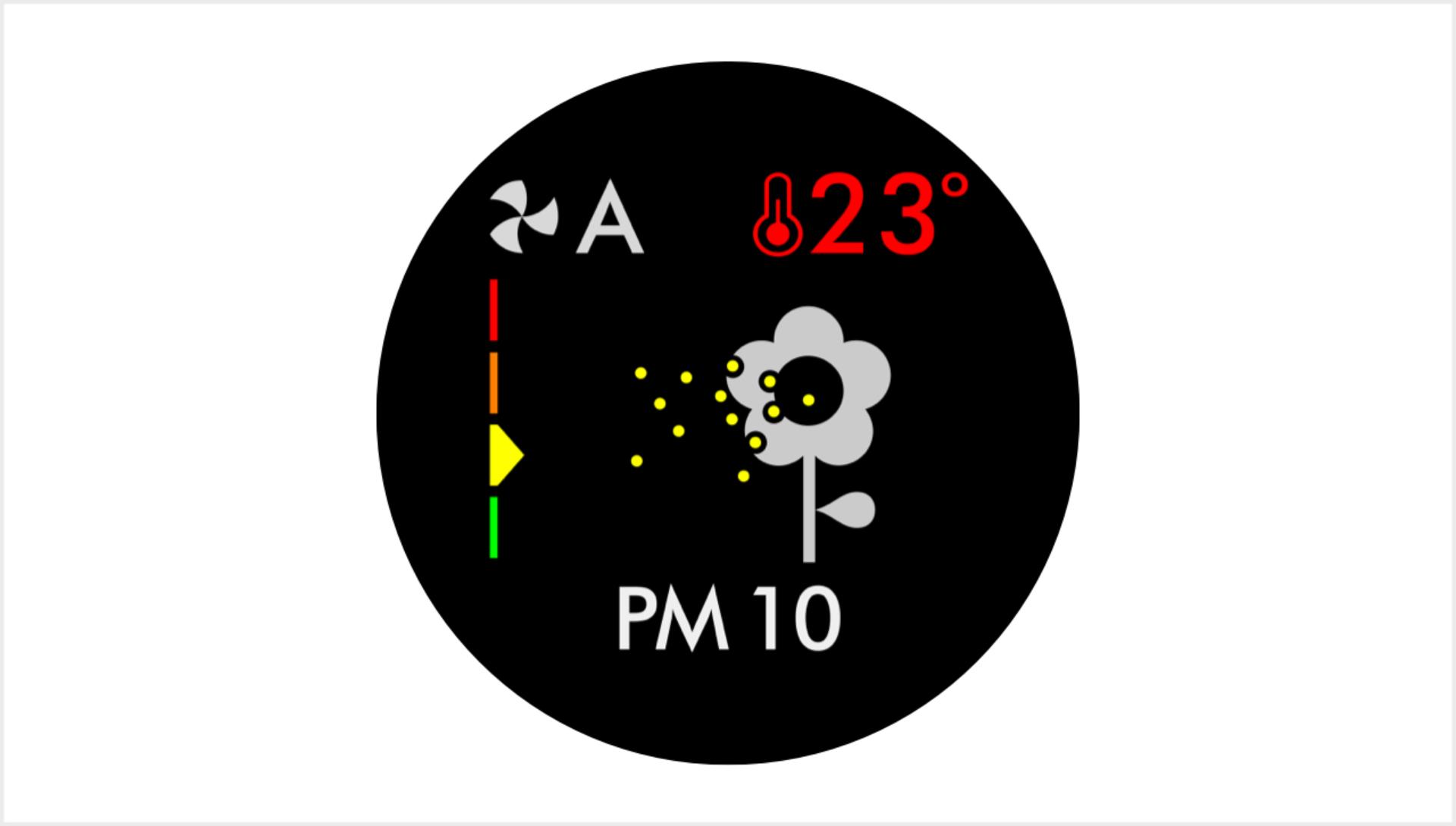
Particulate matter PM10
Shows particles smaller than 10 microns, including pollen, dust and pet dander. -
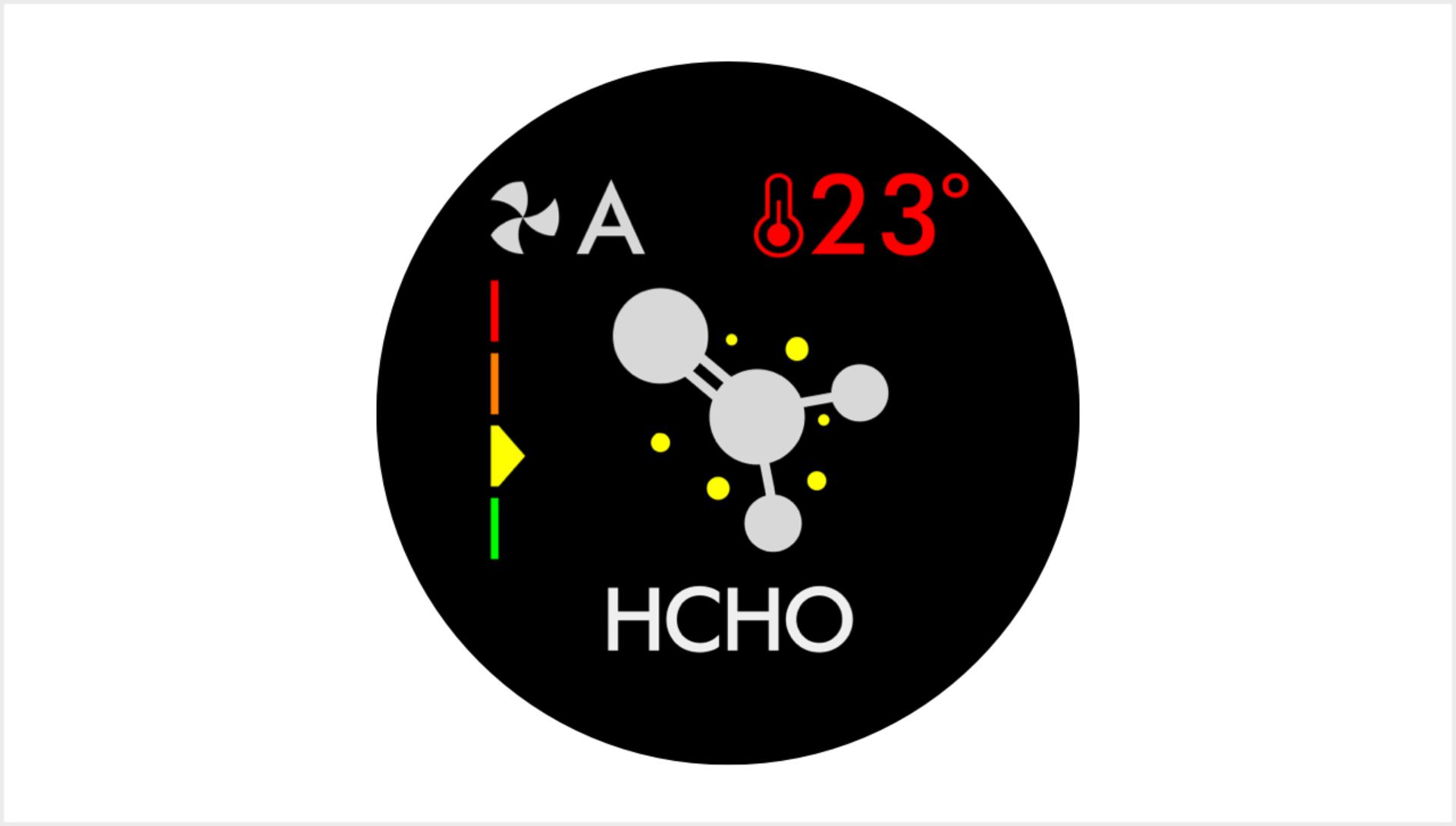
Formaldehyde (HCHO)
Shows particles of formaldehyde, a volatile gas that can emit for years from household flooring and furniture. -
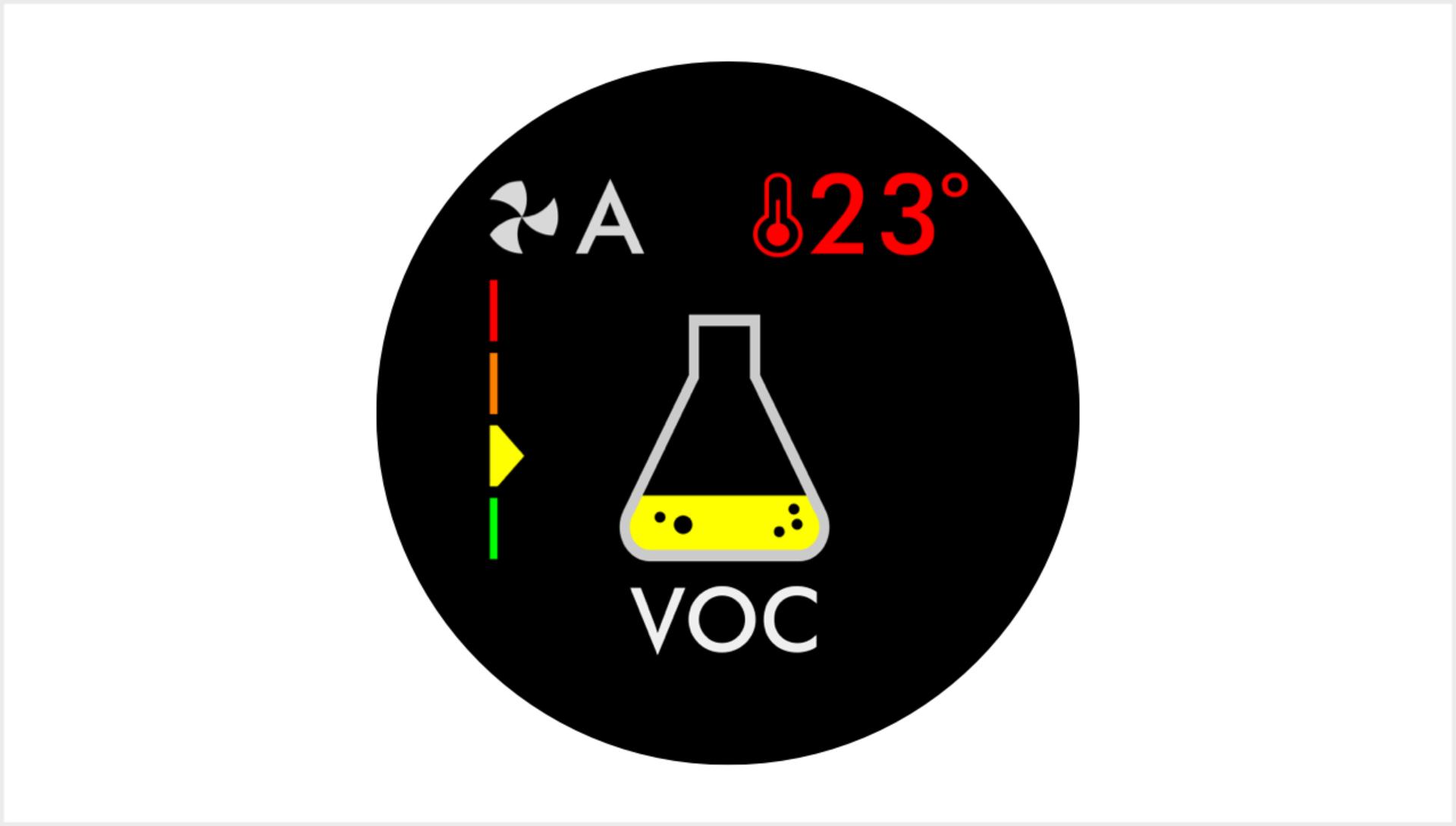
Volatile Organic Compounds (VOCs)
Shows gases released from a wide range of sources, such as aerosol sprays and air fresheners. They include benzene, household fumes and odours. -
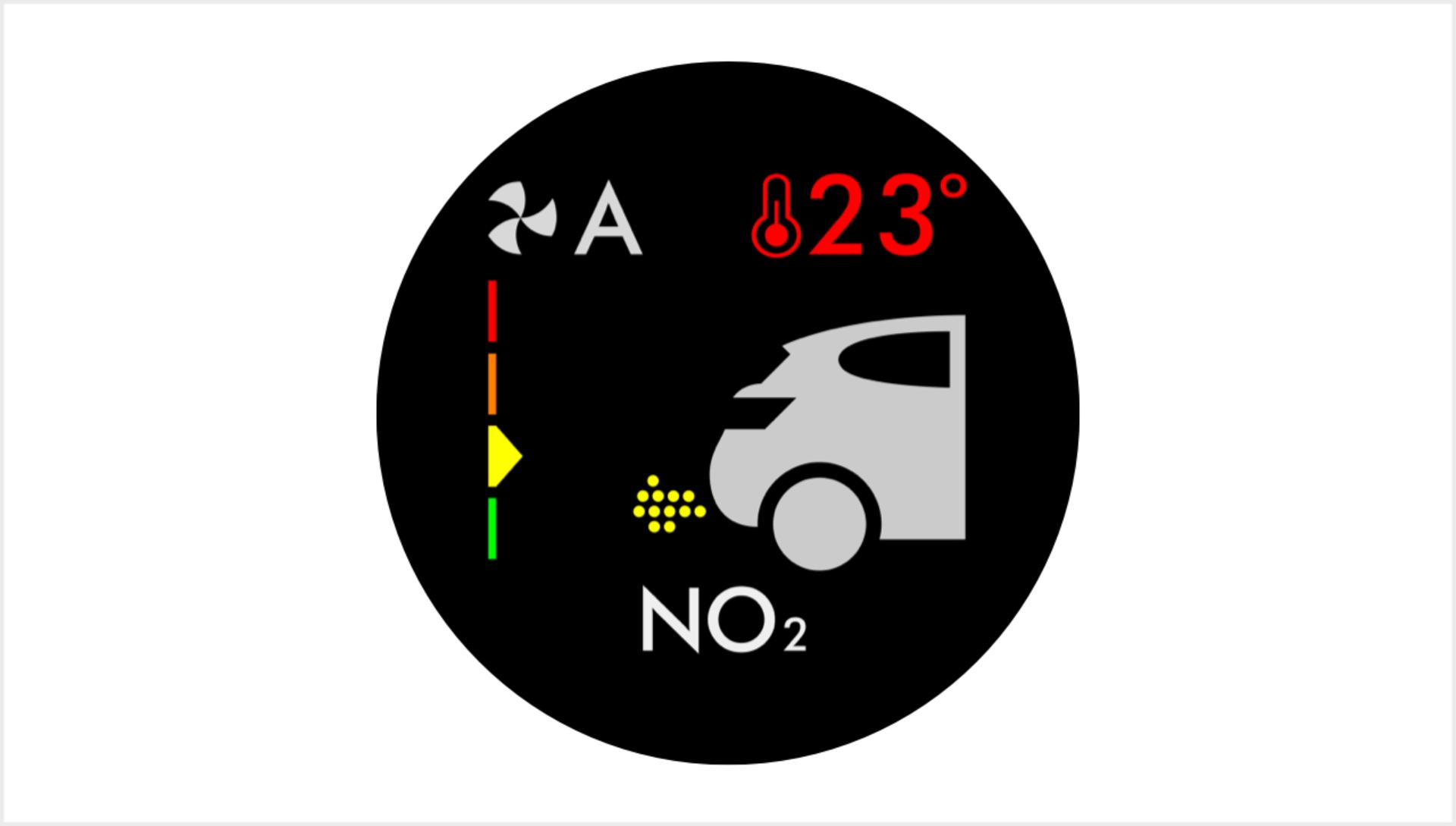
Nitrogen Dioxide (NO2)
Shows oxidising gases such as NO2, released by combustion. Includes cigarette smoke, car emissions, candles and gas stoves. -
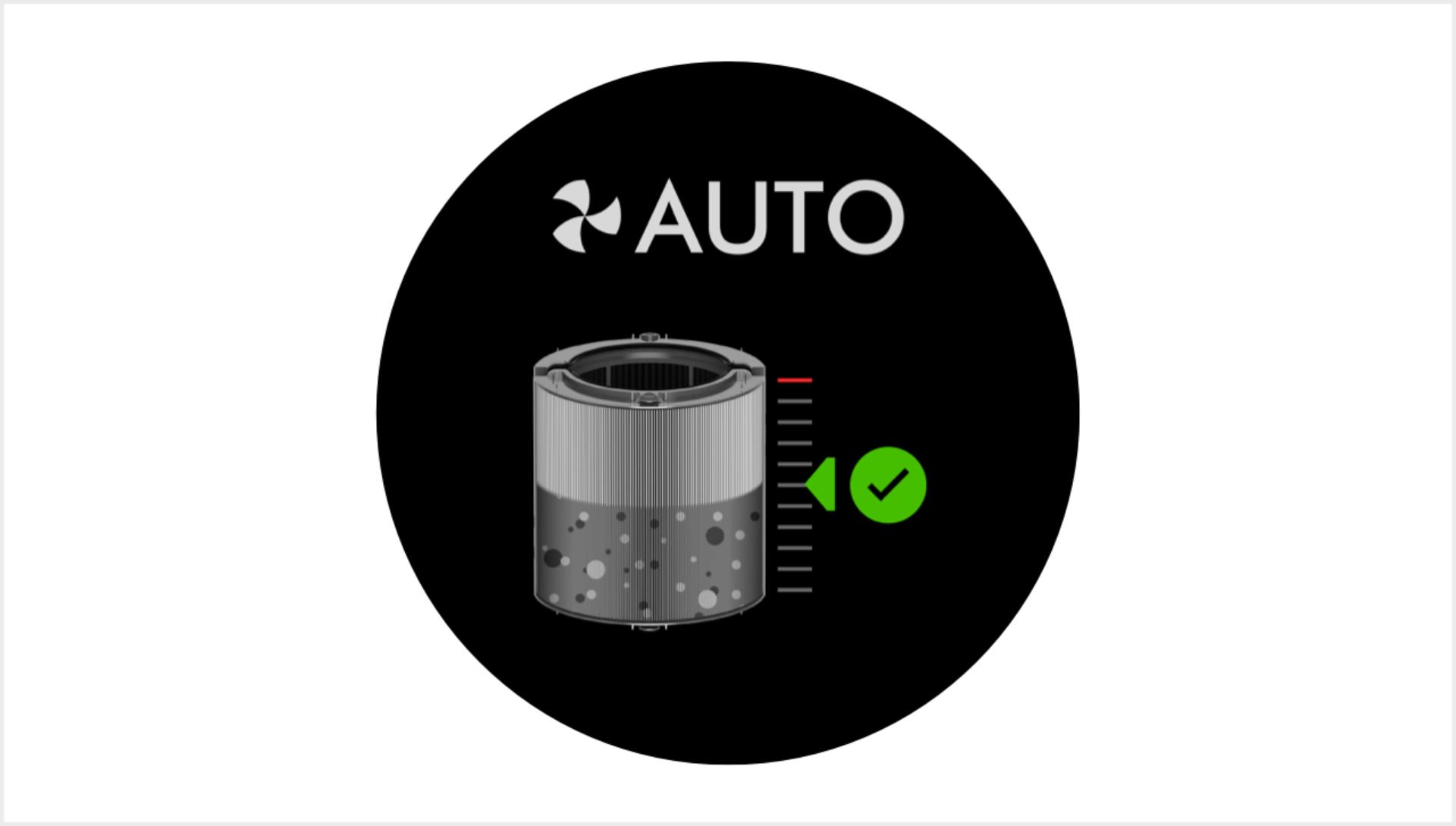
Filter life
Shows how much filter life remains on the HEPA+Carbon filter. So you know when to replace it. -
-
Understanding pollutant levels
When a pollutant reduces your air quality, its icon appears on screen. In this case, PM10. The coloured bar on the left indicates how much of the pollutant is present, and will continually update as the machine purifies your air.
-

Fair
When the yellow section of the coloured bar is highlighted, your purifier is detecting a moderate level of the type of pollutant.
-

Good
When the green section of the coloured bar is highlighted, your purifier is detecting a very low level of the type of pollutant.
-
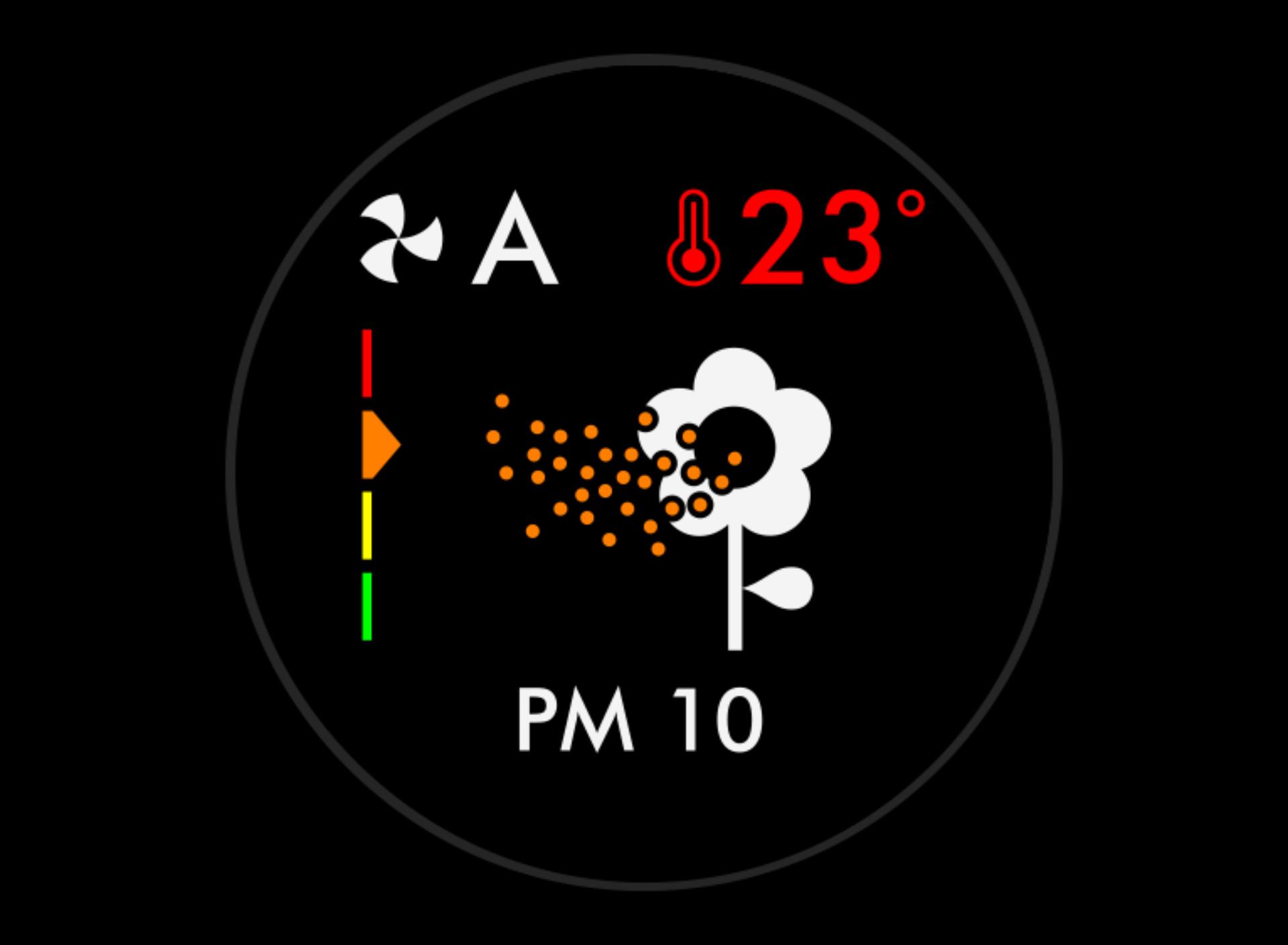
Poor
When the orange section of the coloured bar is highlighted, your purifier is detecting a high level of the type of pollutant.
-
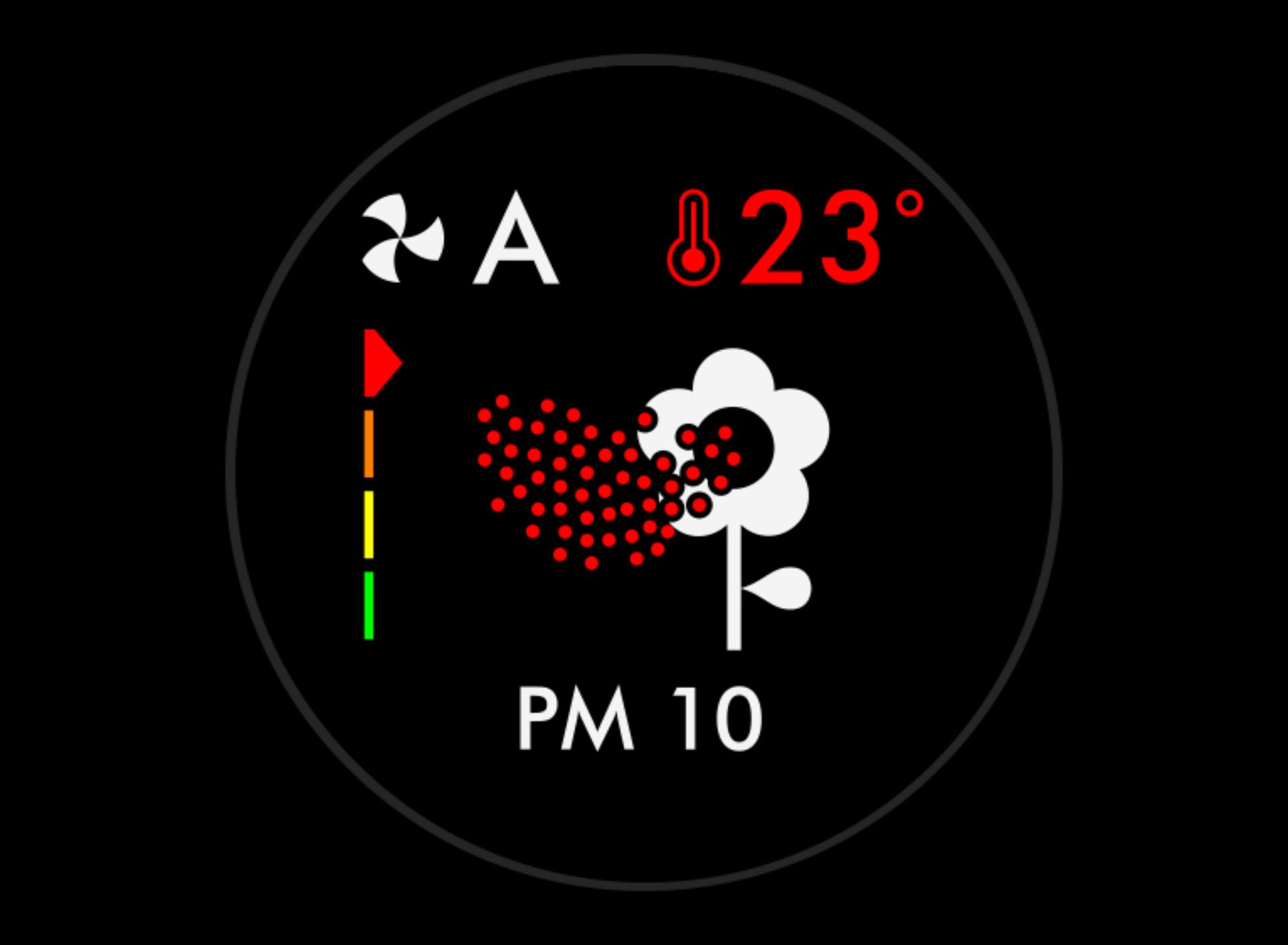
Very poor
When the red section of the coloured bar is highlighted, your purifier is detecting a very high level of the type of pollutant.
Using the remote control
-
Activate Auto mode
Select Auto mode and your on-board sensors will intelligently adjust settings according to your air quality. -
Oscillation and airflow
Watch our video guide on how to customise the angle, speed and direction of airflow.
-
Adjusting the airflow
Both the speed and direction of airflow can be adjusted. For powerful, personal cooling from the front, or diffused air diverted through the back of the machine. -
Sleep timer and Night mode
Set the Sleep timer to turn your purifier off, or use Night mode for the quietest settings and a dimmed screen.
Using the MyDyson app
-
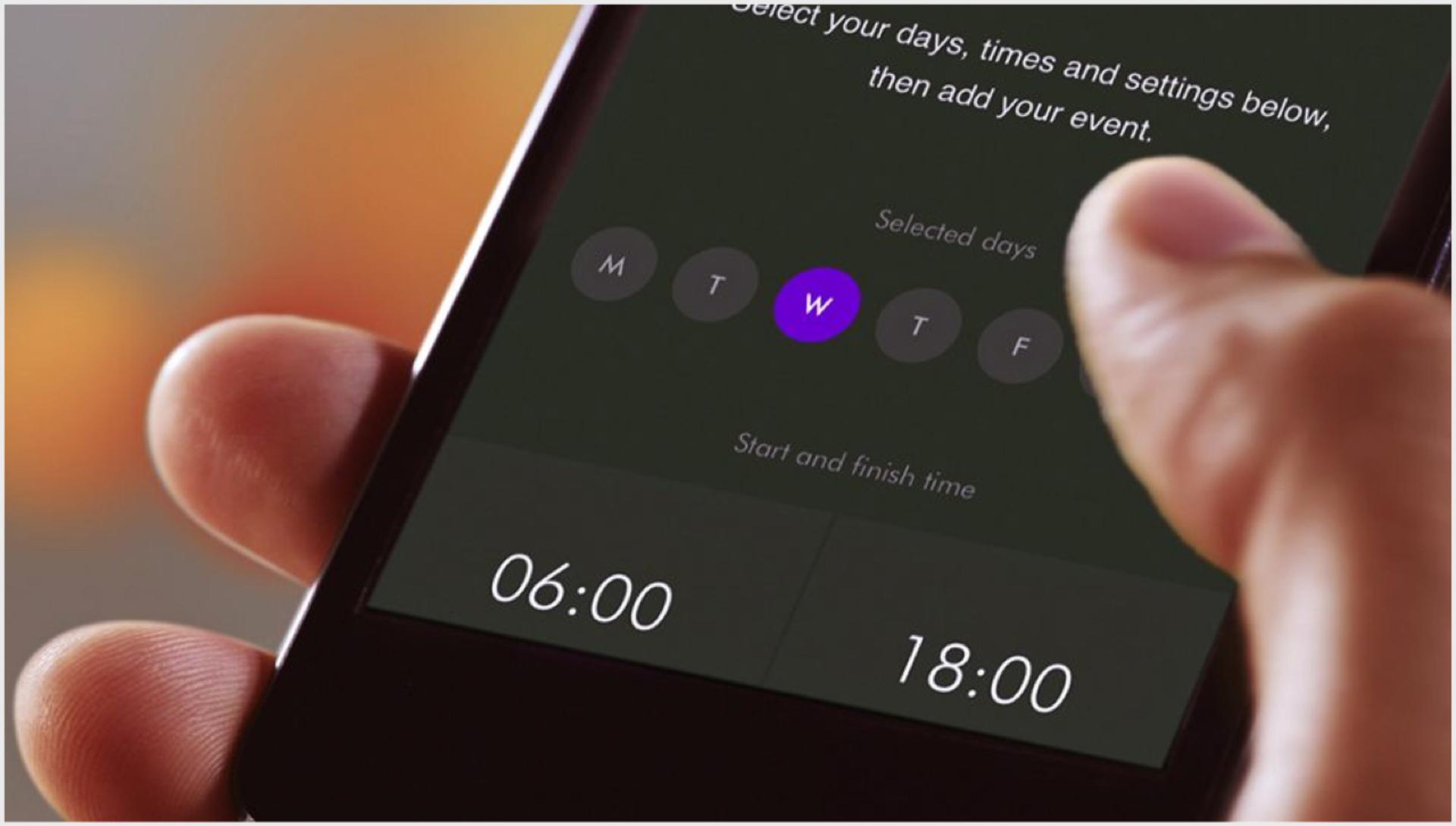
Set and forget
View real-time or historic air quality data wherever you are, or set and forget with advance 7-day scheduling. -
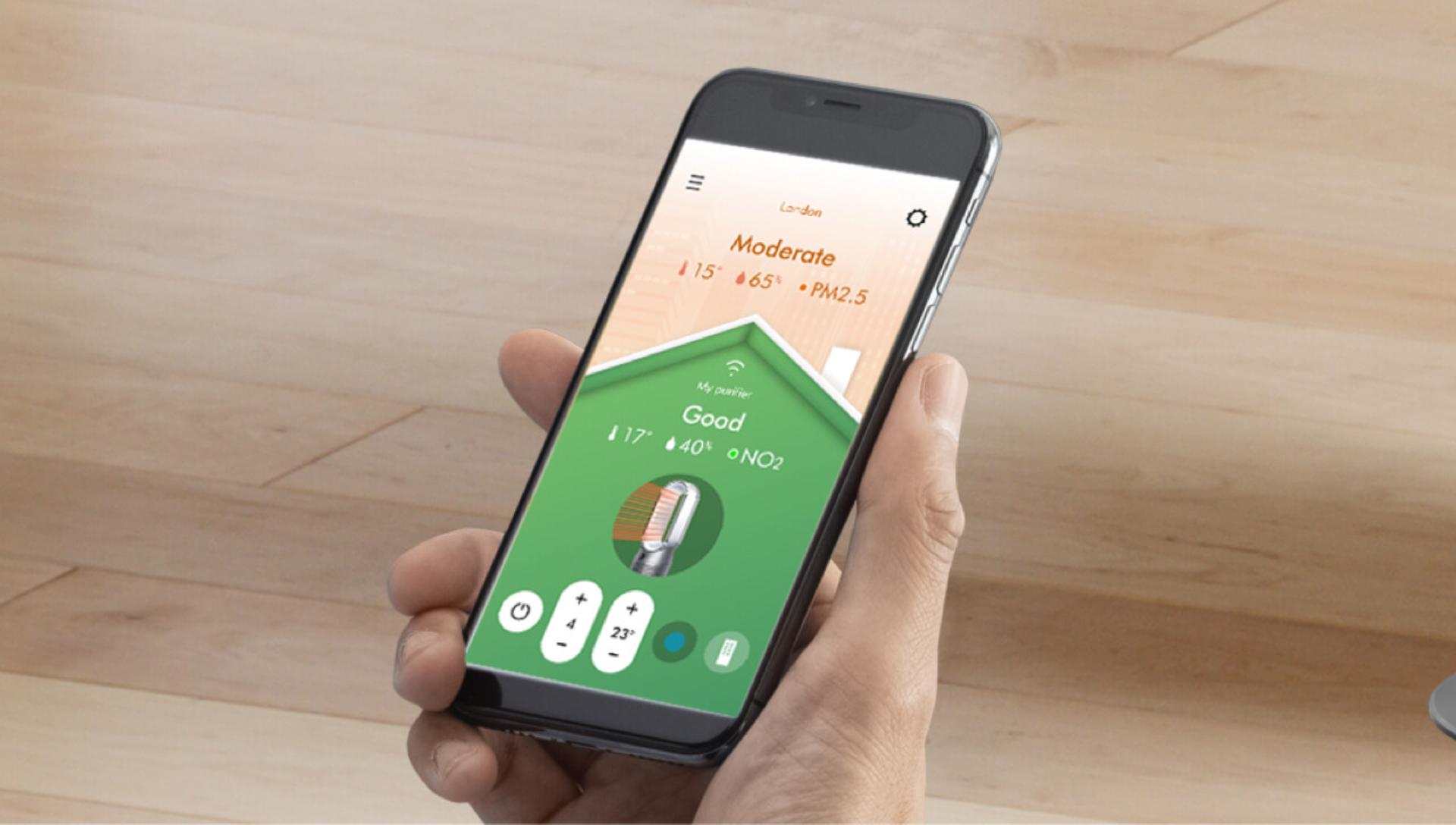
Instant control
Your primary controls are now instantly accessed on the home screen, including power, fan speed and temperature. -
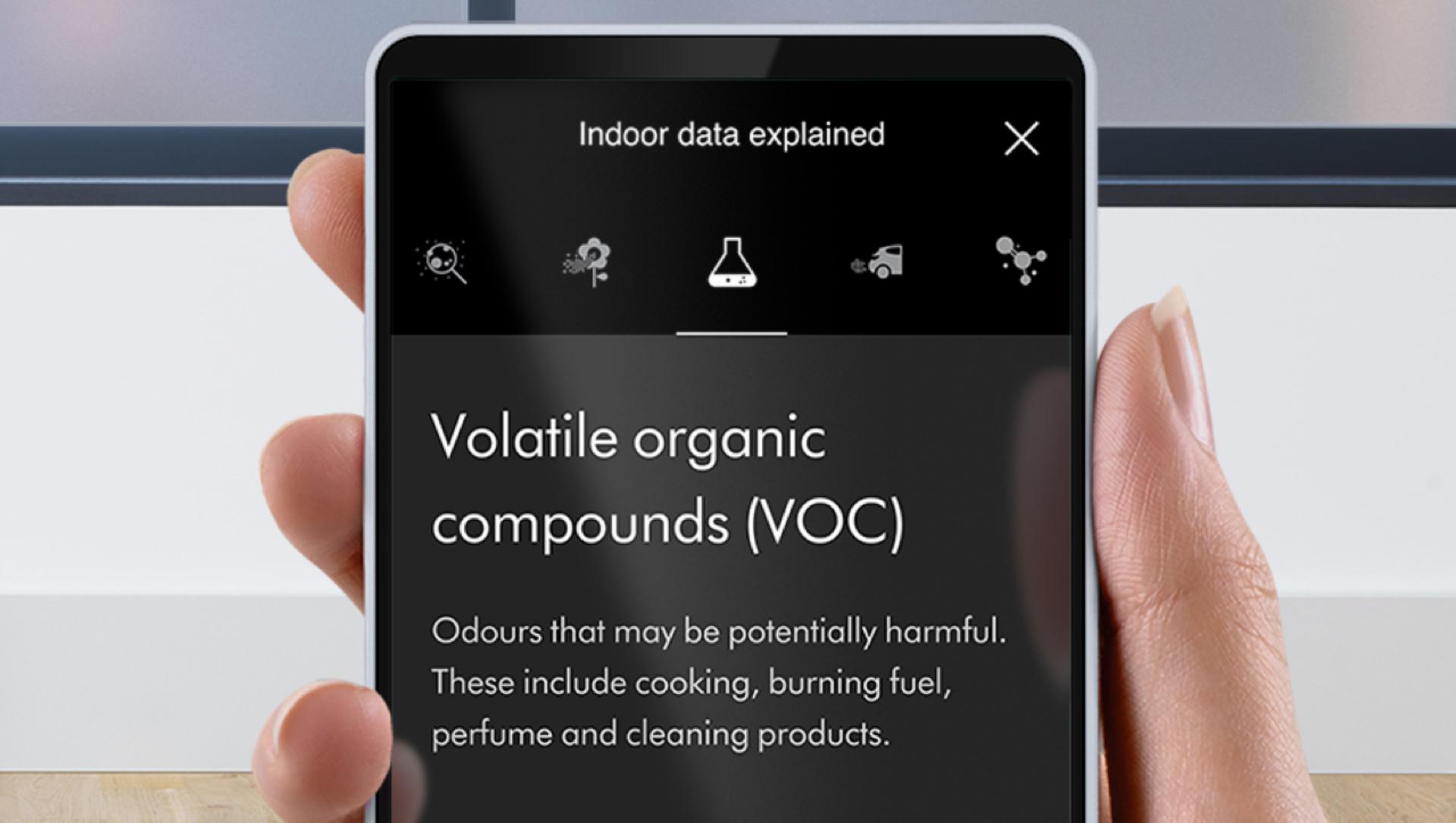
Help is at hand
Not sure what NO2 or VOCs are? Find instant answers to air quality questions in our app's help section.
Maintaining your purifier
To ensure optimum air purification performance, we recommend replacing your HEPA+Carbon filter every 12 months. Your Catalytic filter never needs replacing.
Frequently asked questions
Increasing airflow will create a cooling effect using purified air, so you may find it beneficial to change your purifier's speed settings as the temperature changes. For personal cooling in summer, use settings 4-10. In colder periods, enable diffused mode. It projects air through the back of the machine, to avoid unwanted cooling.
If you're concerned by the brightness of your purifier's LCD display, consider enabling Night-time mode using your remote control or the Dyson Link app. During operation, a small moon icon indicates that your purifier is on, but the main display turns off after 10 seconds to help avoid sleep disturbance.
If auto mode is enabled, AUTO will be illuminated on your purifier's LCD display. When your machine is purifying the air, AUTO will be in white. When the air in the room is purified, it will turn green and your purifier will remain idle until pollutant levels rise.
Your purifier's auto mode is designed to manage the air quality in your home without you having to operate the machine – so it's only on when it needs to be. If you or someone in your home suffer from allergies or respiratory illnesses, we particularly recommend using your machine's auto mode.
Your purifier is engineered to purify single rooms, so you should use it where you spend the majority of your time at home. When placing the machine, make sure there is at least a few feet of clearance on all sides so that the air can circulate effectively.
Your purifier works most efficiently in a sealed environment – opening the windows can allow more pollutants to enter the air in your home, which means your machine will take longer to work.
The HEPA+Carbon filter needs to be changed after 12 months, based on 12 hours’ use a day. The Dyson Catalytic filter is permanent, so you don’t need to change it.
